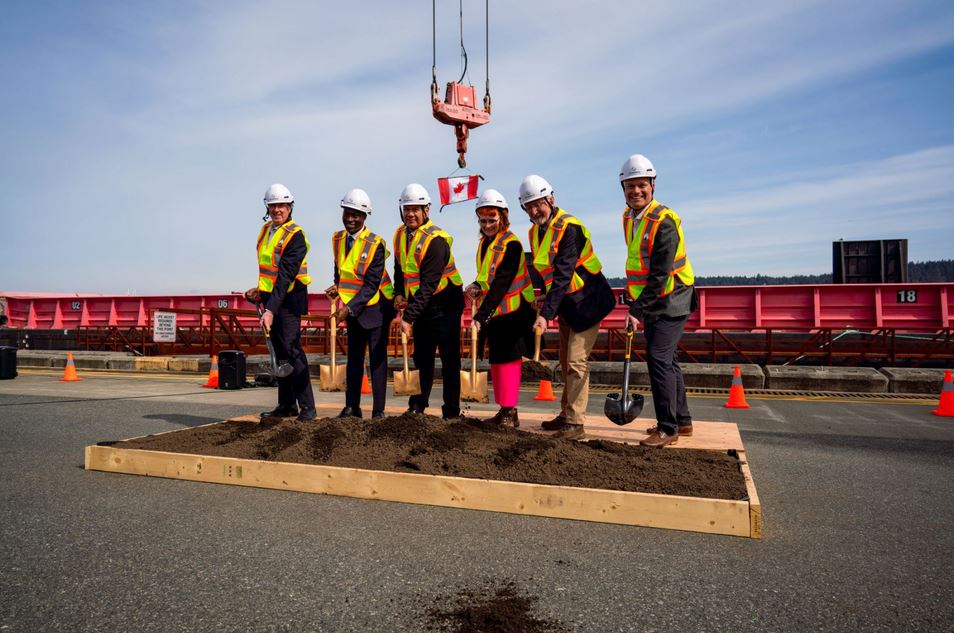 DP World has officially commenced construction on the Duke Point Terminal expansion in Nanaimo, Vancouver Island, according to the company's release.
DP World has officially commenced construction on the Duke Point Terminal expansion in Nanaimo, Vancouver Island, according to the company's release.
The project aims to enhance the region's connectivity and trade resilience with global markets.
The Duke Point Terminal project, supported by the Snuneymuxw First Nation and the Port of Nanaimo, will increase operational efficiency and handling capacities. Upon completion, the terminal's berth length will increase from 182 metres to 325 metres, and its cargo-handling capacity will expand to 280,000 TEUs annually. This expansion will enable the terminal to accommodate larger international vessels, improve services for importers and exporters, and facilitate smoother regional and international trade.
The project also includes a short-sea shipping connection between Nanaimo and Vancouver, aimed at improving trade routes to key Asian markets. The terminal expansion will feature additional storage, including a dedicated 26,000 square-foot covered area for pulp products. DP World is also replacing an existing diesel-powered quay crane with two fully electric cranes.
The project is supported by Snuneymuxw First Nation’s free, prior and informed consent and a 50-year lease agreement between DP World and the Port of Nanaimo. Funding for the project includes $46.2 million from the federal government’s National Trade Corridors Fund (NTCF) and $15 million from the Province of British Columbia under the Regional Port Enhancement Program.
DP World's Canadian operations include terminals in Vancouver, Nanaimo, Fraser Surrey, Prince Rupert, and Saint John.
DP World is a global leader in logistics and supply chain solutions. Headquartered in Dubai, United Arab Emirates, the company operates a network of marine terminals, inland terminals, logistics parks, and technology-driven trade enablers across six continents.
The Port of Nanaimo is a deep-water port located on the east coast of Vancouver Island, British Columbia, Canada. It plays a crucial role in regional and international trade, handling a diverse range of cargo including forest products, breakbulk, and containers.



